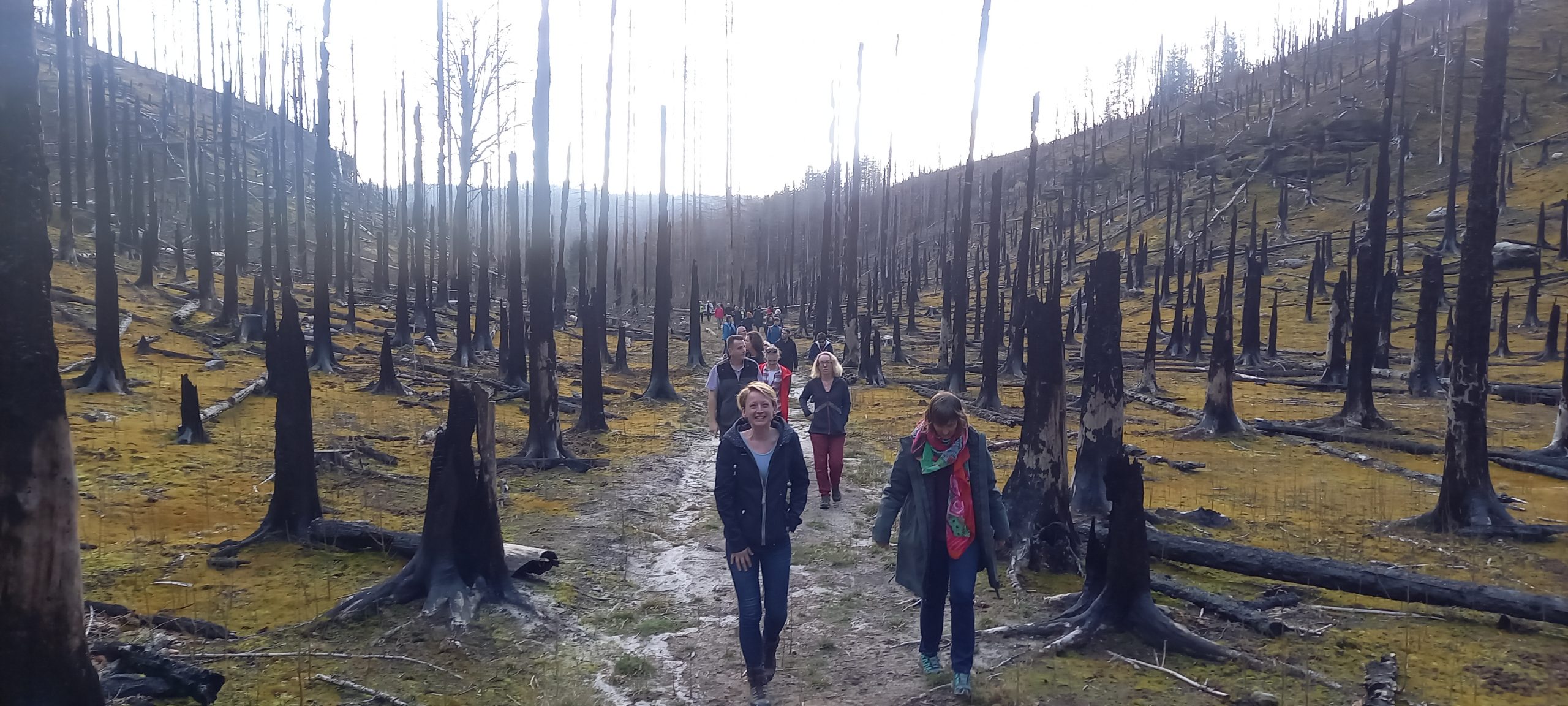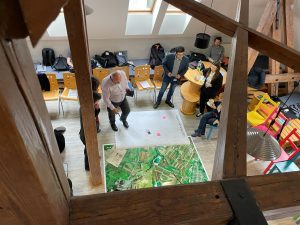LAND4CLIMATE 2nd CONSORTIUM Meeting: Engaging demonstration partners is crucial to maximize the impact of implementing innovative NBS
From March 4th to 6th, 2024, the Jan Evangelista Purkyně University in Ústí nad Labem (UJEP) hosted the second consortium meeting for the LAND4CLIMATE project. Not only academic and practical partners actively attended the event, but also local partners representing both front-running and replicating regions played an important role.
This project meeting represented a valuable opportunity for gathering initial feedback on LAND4CLIMATE ongoing activities and advancing the project’s mission to bridge the implementation gap of Nature-Based Solutions (NBS) on private land by engaging local communities and stakeholders. “The meeting was an important step forward to better understand the potentials but also barriers on the way to implement NBS on private land and to get the implementation of physical measures
on track” say Prof. Dr. Stefan Greiving & Prof. Dr. Thomas Hartmann, project coordinators at TUDO.
“We were delighted to host the project group and to discuss climate change challenges and adaptation strategies during the field visit in the national park Bohemian Switzerland. ” says Assoc. Prof. Lenka Slavíková, leader of the UJEP research team.

At this stage of the project, the partners recognize the importance of sharing challenges and approaches adopted by each demonstration pilot to address climate-related risks. They also acknowledge the significance of analysing innovative land policy strategies to promote a
transformative climate-resilient future.
To address these objectives, the meeting was structured around two main moments. Firstly, partner presentations provided an overview of ongoing tasks, achieved milestones and next steps of the overall project. Second, workshops with the front-running and replicating regions facilitated
the exchange of perspectives, expectations and contributions to the evidence base for climate- resilient NBS, the assessment of the effectiveness and efficiency of NBS implementation, but also provided a vision of the barriers and success factors for transformative NBS through innovative
land policy strategies.

As a result of their active participation and involvement in the discussions and the implementation of the workshop, the representatives of the front-running regions were able to deepen their understanding of the crucial role of local actions and stakeholders engagement for the adoption of new models and approaches which facilitate the application of innovative NBS
on private land. Furthermore, they are strongly committed to the implementation process and are aware of the huge potential of NBS on private lands to actively contribute to adaptation to the impacts of climate change.

